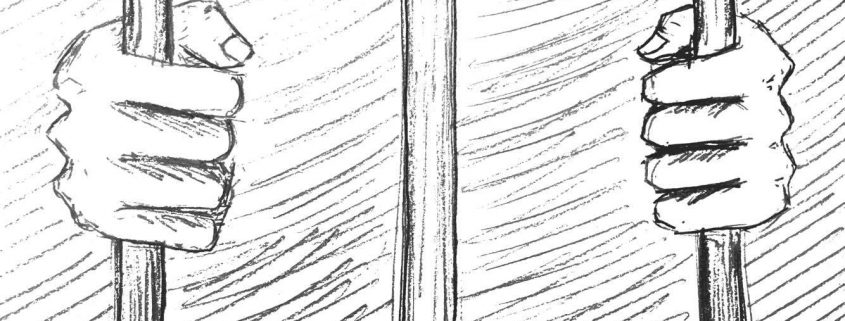COLUMN: Arkansas raises death penalty debate
 The recent turmoil rocking Arkansas over Gov. Asa Hutchinson’s attempt to execute eight men in 10 days does more than put the governor’s moral reasoning into question. Instead, the controversy surrounding the state’s hurried push to use a questionable lethal injection drug before its expiration refocuses the national conversation on capital punishment and should thrust the death penalty to the surface of urgent debate.
The recent turmoil rocking Arkansas over Gov. Asa Hutchinson’s attempt to execute eight men in 10 days does more than put the governor’s moral reasoning into question. Instead, the controversy surrounding the state’s hurried push to use a questionable lethal injection drug before its expiration refocuses the national conversation on capital punishment and should thrust the death penalty to the surface of urgent debate.
In the past hours and throughout the last weekend, facing nationwide criticism and action from judges, Arkansas’ rushed slate of executions has come under intense pressure and may well be blocked by external means. Midazolam, the drug in question, is a major factor responsible for a series of botched executions in which inmates suffered immensely before death. A schedule of executions as rapid as the one backed by Hutchinson will only increase the chance of making mistakes, and is characterized by The Washington Post as “a pace unmatched in the modern era.”
And yet, this fury creates another set of conflicts more ethical and philosophical but no less urgent than the legal battle being waged. If we are to condemn Arkansas’ assembly-line treatment of the death penalty as reckless, then how are we to separate this from general apathy toward the death penalty as a practice? What is different about Arkansas that makes us angry?
In the second episode of its second season, Black Mirror’s “White Bear” explores public perceptions of punishment in its depiction of a woman sentenced to ceaseless legal backlash for her crime of recording a young girl’s torture. For this she is condemned to something equally as horrifying: imprisonment in White Bear National Park, where she is forced to experience the same fear as her victim over and over again. After each day’s events, her memory is electrocuted, and she awakens each morning frightened and alone all over again. And the visitors are all around her, enjoying and encouraging her suffering.
It is a fate worse than death, but also one that serves as an analysis of punishment as a source of revenge and relishment. Capital punishment made headlines earlier this year over the sentencing of Dylann Roof, the reprehensible and unremorseful individual responsible for the horrific killings of nine parishioners in a historically black South Carolina church.
Without a doubt, Roof deserved the very worst the American justice system can offer. But to die? The debate isn’t whether he deserves it. The debate is whether state-sanctioned killing should even be an option to weigh on the public conscience.
The actions happening in Arkansas should frighten us, but where, then, do we begin to cross the line into apathy over the death penalty as a general practice? Is it hypocritical to deride Hutchinson’s rushed schedule of executions but to feel nothing toward the death sentences of people like Roof and Boston Marathon bomber Dzhokhar Tsarnaev? Moreover, on a more macrocosmic spectrum, where do we draw the line between who is worth existing and who isn’t?
It sounds morally wrong to proclaim that the lives of the likes of Roof and Tsarnaev hold value in our society. But when do we get to decide whose lives are important and whose aren’t? The prison system does not exist outside of society. The prison system is built by it. We’ve all heard the cry: “Why do we kill people who kill people to show that killing people is wrong?” Well, here is another twist: Why do we get to decide whose lives count and whose don’t?
In a sickening twist of reality, Arkansas’ attempt at mass execution mimics a satire in the likes of Black Mirror: an exaggeration of events that tests the public conscience in its extreme corruption of a national practice. Except this one isn’t fictional. This one counts.
The United States still uses the death penalty when no other comparable Western counterpart does, when such a practice continues to retain the possibility of causing insurmountable and unconstitutional human suffering and poses no significant deterrent to crime.
And if the events that may happen in Arkansas infuriate you, make you squint and ask, “Should that be right?” then what you are struggling with is not the condensed, methodical two-by-two execution of eight men in 10 days. You are reckoning with the concept of capital punishment, as a national standard and as a violation of human rights.
Spotlighted only now by recent events, the practice of state-sanctioned killing has always existed, and its shadow has always fallen — like a bruise — on the American justice system. Put in Arkansas’ new terms, it is impossible to ignore the absolute disregard for human life the death penalty poses — not in just the obvious way, but in its estimation only as a thing to be scheduled out, held at a value less than the drug promised to end it.
Zoe Cheng is a sophomore majoring in writing for screen and television. Her column, “Cross Section,” runs every other Tuesday.

